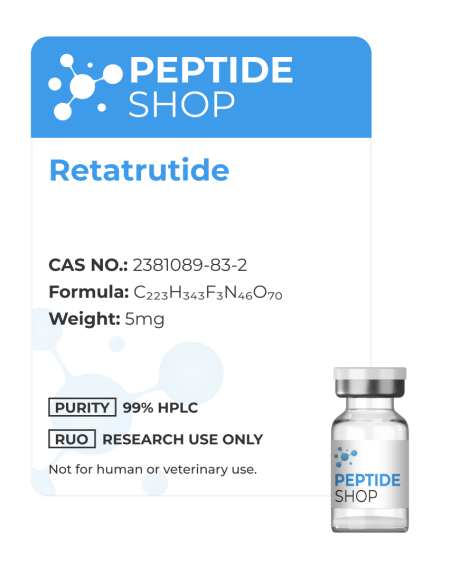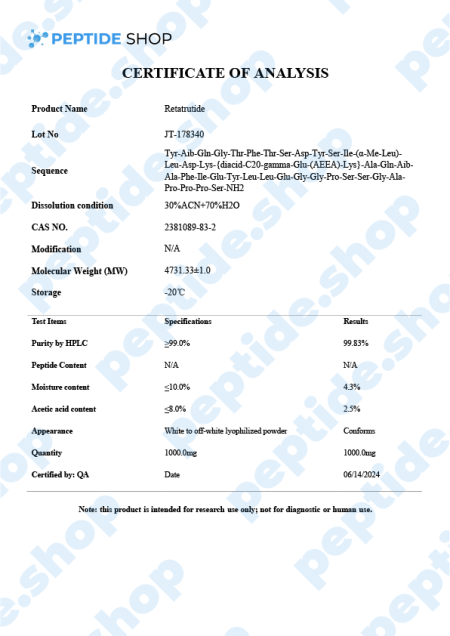-
Retatrutide 5mg/10mg $130.00 – $250.00
Size: 5mg / 10mg
Contents: Retatrutide
Form: Lyophilized powder
Purity: >99%
[rev_slider_vc alias="slider-02-1"]
Browse Categories
- Home
- Peptides
- Adipotide (FTPP)
- AICAR
- AOD9604
- BPC-157
- Cagrilintide
- Cerebrolysin
- Gonadorelin
- KPV
- Semaglutide
- Retatrutide
- CJC-1295
- CJC-1295 DAC
- Epithalon
- Ganirelix
- hGH Fragment 176-191
- Ipamorelin
- IGF-1 LR3
- Kisspeptin
- Liraglutide
- TB-500
- Sermorelin
- PT-141
- Oxytocin
- NAD+
- Semax
- Tesamorelin
- Teriparatide
- Thymosin Alpha-1
- Thymalin
- Triptorelin
- Vesugen (Bioregulator)
- Peptide Blends
- Cosmetic Peptides
- FAQ
- Blog
- Contact Us

 Anti Aging
Anti Aging Hair Growth
Hair Growth Muscle Growth
Muscle Growth Peptide Blends
Peptide Blends Peptide Supplies
Peptide Supplies Peptides
Peptides Skin
Skin Testosterone
Testosterone Weight Loss
Weight Loss
